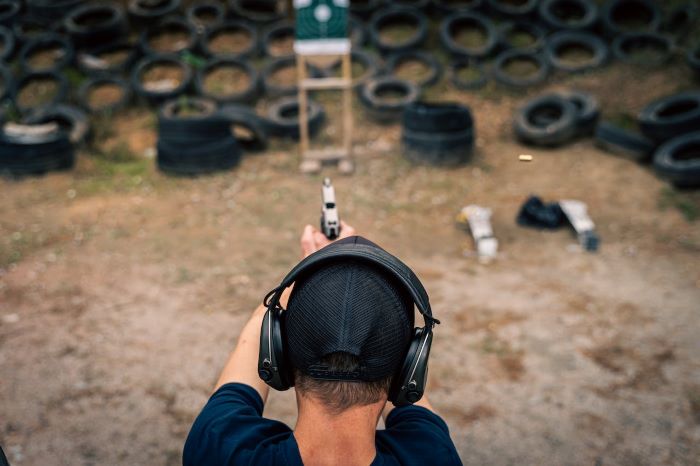Choosing the best firearm for your self-defense needs is a significant decision that requires careful consideration of various factors. The right firearm can provide a sense of security and preparedness, while the wrong choice can be cumbersome or ineffective in critical situations. Here we will discuss the process of selecting a firearm that meets your specific self-defense needs.
Understanding Your Needs
1. Evaluate Your Situation:
- Home Defense vs. Concealed Carry: The purpose of the firearm significantly influences the choice. A home defense gun can be larger, like a shotgun or a rifle, providing more stopping power. In contrast, concealed carry weapons need to be compact and easy to carry, such as the SIG SAUER P365 X MACRO.
- Personal Comfort and Skill Level: Assess your comfort level and experience with firearms. Beginners might prefer a firearm with simple operation, while experienced users may opt for advanced features.
2. Legal Considerations:
- State and Local Laws: Check the legal requirements and restrictions in your area regarding firearm ownership, carry permits, and self-defense laws.
- Permit Requirements: Understand the process for obtaining necessary permits for either concealed carry or home defense firearms.
Types of Firearms for Self-Defense
1. Handguns:
- Revolvers: Known for their reliability and ease of use. They have a limited capacity but are excellent for beginners due to their simplicity.
- Semi-Automatic Pistols: Offer a higher capacity and quicker reload times. They require more skill to operate effectively.
2. Shotguns:
- Ideal for home defense due to their stopping power and the wide spread of shot. They are easier to aim under stress but have significant recoil.
3. Rifles:
- Provide accuracy and high capacity. Suitable for those comfortable with firearms and have a more extended range than handguns or shotguns.
Key Features to Consider
1. Caliber:
- The caliber should provide sufficient stopping power without excessive recoil. Popular self-defense calibers include 9mm for pistols, .38 Special for revolvers, and 12-gauge for shotguns.
2. Size and Weight:
- The firearm should be comfortable to hold and use. Heavier guns reduce recoil but are harder to carry for extended periods.
3. Capacity:
- Higher capacity allows for more shots before needing to reload, which can be crucial in a self-defense scenario.
4. Reliability:
- The firearm must function reliably. Research and read reviews to understand the reliability of different models.
5. Ergonomics and Comfort:
- Ensure the firearm fits your hand comfortably and that you can reach all controls easily.
Training and Practice
1. Professional Training:
- Invest in professional training to learn how to handle and operate your firearm safely and effectively.
2. Regular Practice:
- Regularly visit a shooting range to maintain and improve your shooting skills.
Maintenance and Storage
1. Safe Storage:
- Store your firearm safely to prevent unauthorized access. Use gun safes or locks.
2. Regular Maintenance:
- Regular cleaning and maintenance are essential to keep the firearm in good working condition.
Legal and Ethical Consideration
1. Understanding of Use of Force Laws:
- Familiarize yourself with the laws regarding the use of force in self-defense in your jurisdiction.
2. Moral Implications:
- Consider the moral and ethical implications of using a firearm for self-defense.
Conclusion:
Selecting the best firearm for self-defense is a multifaceted decision that requires considering your personal needs, legal requirements, and comfort with firearms. It’s crucial to weigh factors such as the type of firearm, caliber, size, capacity, and reliability. Professional training and regular practice are indispensable to ensure you can use your firearm effectively and responsibly. Always prioritize safety and legal compliance, and remember that owning a firearm for self-defense carries significant moral and ethical responsibilities. By carefully considering these aspects, you can choose a firearm that provides the security and peace of mind you seek in self-defense situations.

